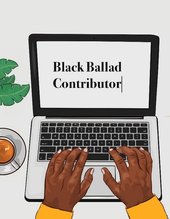I decided to return to the island that my parents were raised on to conduct my dissertation research, alone. Having only visited twice in the past decade, it felt like a giant leap for an English child of the diaspora.
I feared that because my father had ignored my nagging to teach me Dominican Creole (or Kwéyòl), that I would be an outsider in the very same place that for my parents was home. Yet, as I settled into the island, I found that many more adults were in similar positions, feeling detached from our roots because our parents had not taught us their mother tongue.
Where I expected to find disjuncture between myself and my Dominican community, I instead learnt that there is a growing effort across the diaspora to reclaim the native languages that our parents didn’t pass on. From Creole icon, Ophelia Olivaccé-Marie, to the 20- and 30-year-olds enrolling in online classes, to Deborah – a friend of mine who self-taught Yorùbá and aspires to develop an app to help others do the same – there is hope in a revival.
